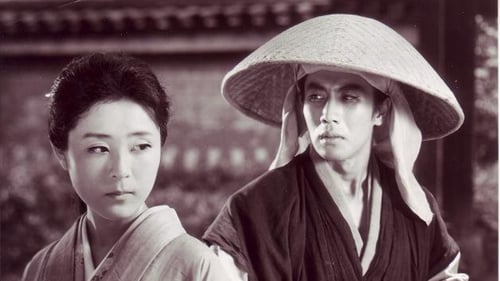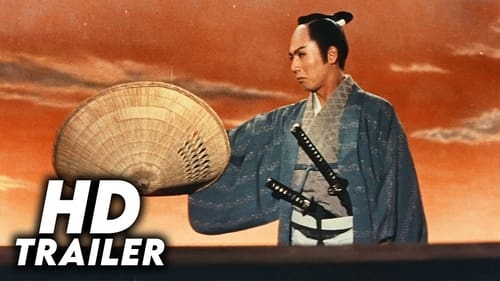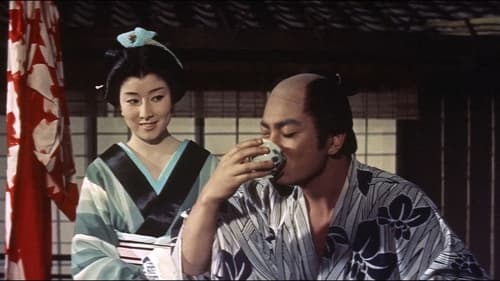
Yoso is truly a lost classic, set in the Nara Era (710-794), from Kinugasa Teinosuke the same writer/director who gave us the recognized classic Gate of Hell (Jigokumon, 1952) & the milestone silent surrealist masterpiece A Page of Madness (Kurutta Ippeji, 1926).

[Period covered: 1582-1594]. As the film opens, the warlod Nobunaga Oda rides to Iga Ayanokuni shrine. He is asked if he thinks he has destroyed all the ninja who opposed him and answers that he suspects that there may be more. A servant brings water and tests it first. The paige dies and we hear gunshots as two ninja flee the scene. His suspicions confirmed, Nobunaga oversees the execution of captured ninja and decides that, in the future, he needs a much crueler method of execution. The daimyo Hideyoshi comes to visit.

Podríamos quejarnos de que Kenji Misumi repite desarrollo en la segunda y la tercera parte de “Satan´s Sword”. Sin embargo es una cuestión solo apreciable desde el punto de vista de aquel que lee la sinopsis. En lo que respecta a la película, cada una de ellas se ve respaldada por elementos secundarios que la diferencian completamente de las otras.
Precisamente es el hecho de repetición argumental centrada en la persecución de Hyoma buscando venganza, lo que hace que se debilite ese deseo. Él mismo comienza a tomárselo como una costumbre, llegando a olvidar incluso por qué lo hace. Su lucha interna solo se decidirá al llegar el final del film.

Two amiable samurai wind up on opposite sides of the vendetta between Lord Asano's retainers and the family of Lord Kira that led to the famous revenge of the 47 Ronin.

Legendary yakuza Shimizu Jirocho and his 28 henchmen travel the unruly path from a 'Fire Festival' in Akiba to a decisive battle by the Fujigawa.

Obata's retainer
Based on the famous novel by Yamagami Itaro, this is the story of a group of ronin living in abject poverty in the latter days of the Edo period. Starring the great Konoe Jushiro, Ronin Gai is populated by an ensemble of colorful characters, social outcasts who patronize a restaurant and bar on the outskirts of Edo. Among them are masterless samurai reduced to drunkenness and debauchery. One disgraced and disillusioned former warrior gets a chance at redemption when he is hired to retrieve a famous knife from a corrupt lord. This is the third version directed by Makino Masahiro and is considered a true classic.

The 40th and final "Tengu Kurama" feature starring Kanjuro Arashi.





